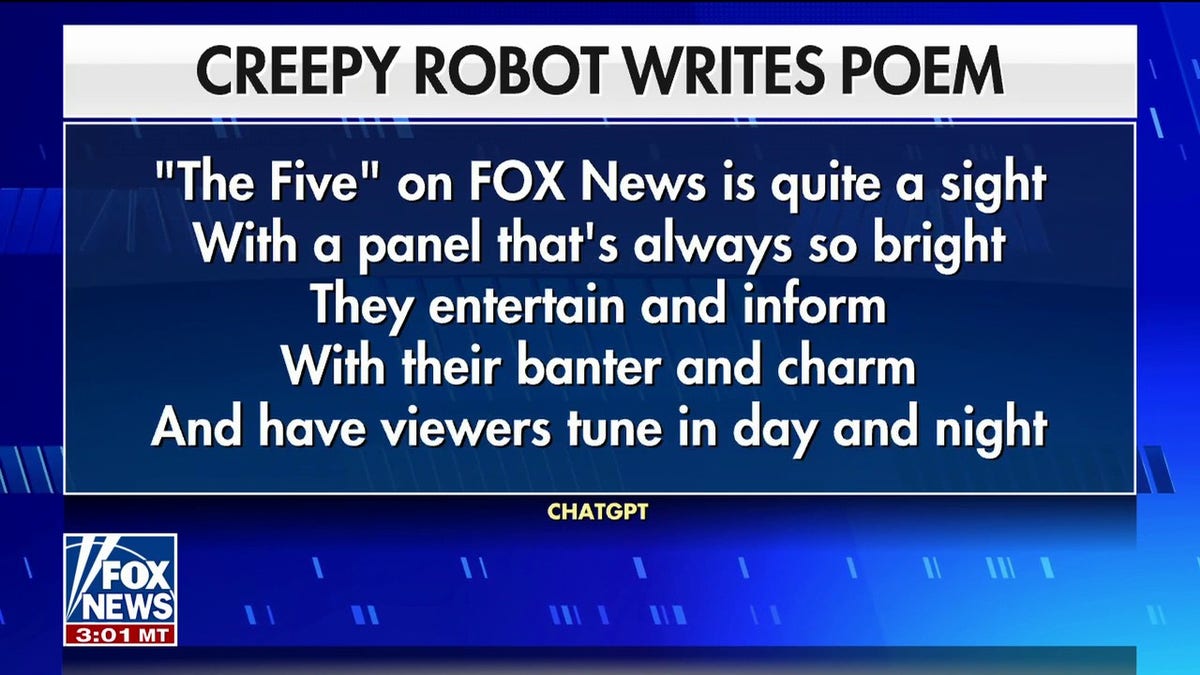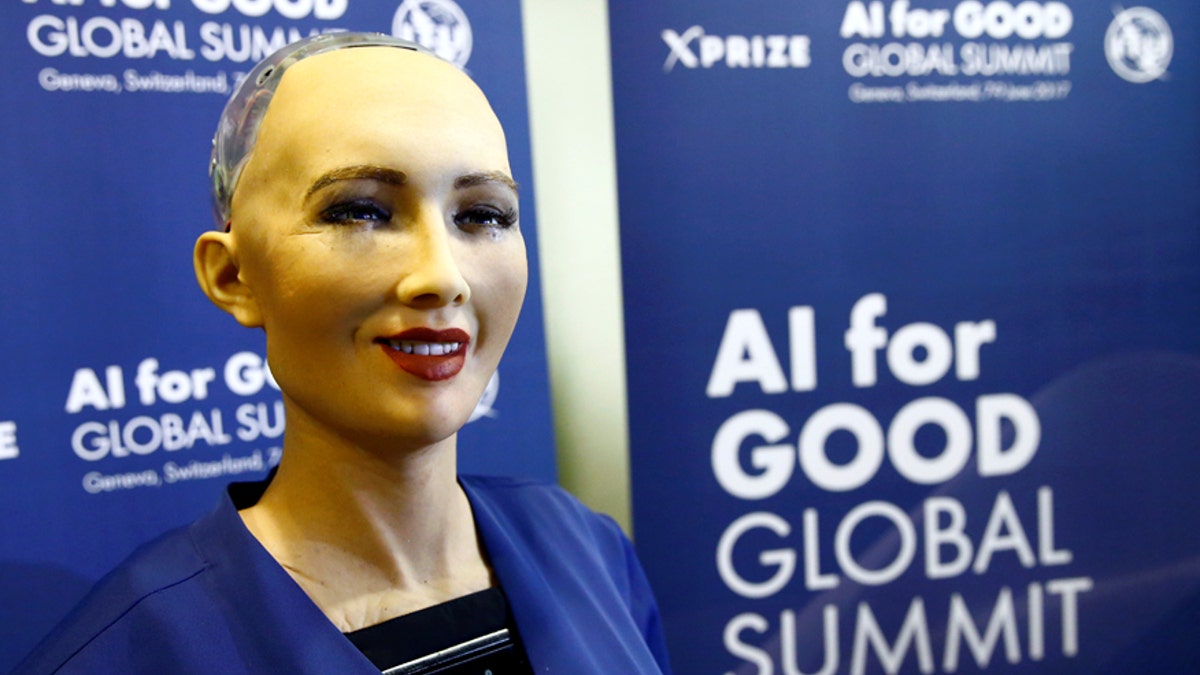Greg Gutfeld: Artificial intelligence could be the answer to life
'The Five' co-hosts discuss new AI bot ChatGPT and the impact artificial intelligence will have on future jobs.
Fox News' Jesse Watters offered reassurance Wednesday on "The Five" that a war against machines is not imminent and killer robots haven't taken over quite yet.
A new artificial intelligence (AI) bot, ChatGPT, caused a stir on social media, writing essays, books, poems and even computer code upon request.
"The Five" got in on the trend asking it to write a poem about the show. "They entertain and inform with their banter and charm and have viewers tune in day and night," the message read in part.

"The Five" ask an AI bot to write a poem about the show. (Screengrab/ The Five)
Several co-hosts teased the AI for being unable to rhyme.
"Well, inform and charm don't rhyme," Dana Perino said.
"Yeah, that's lousy rhyming," Geraldo Rivera added.
"Our jobs are safe," Jesse Watters chimed in.
ARTIFICIAL INTELLIGENCE TECHNOLOGY CAN SECURE SITES BY SCANNING MAJOR VENUES FOR WEAPONS
Experts warn that AI has the potential to take away some jobs from humans, and the technology could allow children to cheat by writing papers for them.
Perhaps the biggest fear is AI becomes so smart, it finds a way to control humanity, Watters suggested.
Judge Jeanine Pirro explained the biggest thing that scares her is who feeds this program its information.
"It doesn’t Google things. It spits out what you give it," she said. "So if you’re going to feed information about education, is it CRT you’re feeding, is it the woke stuff you’re feeding? Teachers now have certain things that they can test if you plagiarized an essay or something. They can't do it now with this stuff. This creates a tremendous negative."
Co-host Greg Gutfeld offered an alternate opinion, saying AI might be beneficial because it could provide humans with the "answer key to life."

Sophia, a robot integrating the latest technologies and artificial intelligence developed by Hanson Robotics is pictured during a presentation at the "AI for Good" Global Summit at the International Telecommunication Union in Geneva June 7, 2017. (REUTERS/Denis Balibouse)
"Our whole existence is about probability. We sit around and try to figure out what’s going to happen in the next minute, the next block, or the next day. That’s all our brain does is think about probability. AI solves probability. It tells you what's going to happen next," he said.
CLICK HERE TO GET THE FOX NEWS APP
Gutfeld also argued AI, in a sense, is already better than humans because it doesn't have human flaws like failure and envy.
"What we’re seeing right now is an AI that is still controlled by humans," he said. "As long as humans are on the front of this equation, we have no idea what it could do, no idea. But once AI becomes independent and autonomous, it’s a whole new ballgame."










































